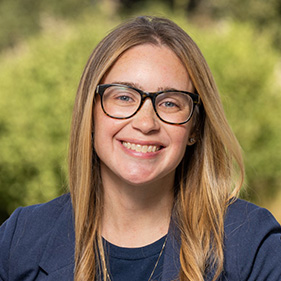The California Firearm Violence Research Center has awarded nearly $225,000 in grants to investigators studying gun violence exposure among adolescents, intimate partner violence and sex trafficking.
Researchers from Stanford University, the University of California, Davis and the University of San Diego received funding through the center's 2024 Research Grant Award Program. The center is based at the Violence Prevention Research Program at UC Davis.
Since its first round of funding in 2019, the grant program has supported 15 research and evaluation studies. The goal is to expand the number and the diversity of researchers who produce actionable evidence about strategies for reducing and preventing violence-related harms and advancing safety and equity outcomes.
"These projects exemplify the exciting next frontier of rigorous research that employs a variety of methods," said Nicole Kravitz-Wirtz, a California Firearm Violence Research Center lead investigator. "The studies are centered on the needs and experiences of communities experiencing the greatest burdens of violence and systemic inequity." Kravitz-Wirtz is an associate professor in the Department of Emergency Medicine.
Our hope is that these grants will help to effectively and sustainably improve safety and equity outcomes throughout California and across the country." -Nicole Kravitz-Wirtz, California Firearm Violence Research Center lead investigator
The 2024 funded projects are:
- Leveraging Natural Language Processing for Identifying Intimate Partner Violence using Unstructured Health Care Records, investigators: Lisa Knowlton and Lakshika Tennakoon, Stanford University, Department of Surgery: This study will address challenges in identifying intimate partner violence among patients receiving care in health care settings. Existing methods lack consistency, contributing to underreporting. Stigma and fear silence victims, exacerbating the public health crisis. A scalable solution could empower health care professionals to identify and address intimate partner violence cases effectively.
- Exploring the Links: Group Gun Violence and Sex Trafficking and Exploitation in Oakland, CA, investigator: Rachel Locke, University of San Diego, Kroc Institute for Peace and Justice: This research will analyze the relationship between group-involved gun violence and sex trafficking and exploitation in Oakland. The work seeks to find entry points to interrupt harmful pathways by engaging directly with a range of community partners.
- Using an Innovative Machine Learning Method to Investigate Gun Violence Exposure on Adolescents' Developmental Outcomes at School, investigators: Siwei Liu and Di Jody Zhou, UC Davis, Department of Human Ecology: This project aims to study the impacts of community gun violence exposure on adolescents' social and behavioral functioning. It will use an innovative machine-learning method that could provide insights for developing targeted interventions and strategies to mitigate the adverse impacts of firearm violence.
The $224,350 in research funds were awarded based on scientific merit through an open, competitive peer review process. Projects will begin this fall and last up to two years.
"Our hope is that these grants will help to effectively and sustainably improve safety and equity outcomes throughout California and across the country," Kravitz-Wirtz said.
About the California Firearm Violence Research Center: The first state-funded center for firearm violence research in the country, the center is housed at the Violence Prevention Research Program at UC Davis.







